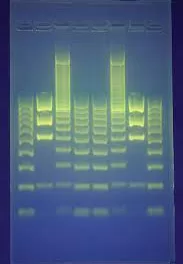
Health information on alcohol products allows consumers to make informed choices about the risks of consuming alcohol. Ireland is the first country in the European Union (EU) to ensure that, from 2026, all alcohol products will have comprehensive labelling about health risks from consumption, including warnings about the risks of developing cancers.
Tackling harms and lack of awareness
Alcohol consumption can have devastating effects on individuals and communities, causing over 200 conditions and diseases, including 7 types of cancer. In the EU, light to moderate drinking levels were responsible for almost 23 000 new cancer cases in 2017, nearly half of which were female breast cancers.
“The medical evidence is clear that a cancer risk applies even at lower levels of alcohol consumption,” said Minister of State for Public Health, Wellbeing and the National Drugs Strategy Hildegarde Naughton.
The decision to introduce mandatory health labelling on alcohol products came in response to alarming statistics surrounding alcohol-related harms in Ireland, in combination with low population awareness among Irish consumers regarding the health risks associated with alcohol consumption.
The Irish Health Survey, conducted in Ireland every year with over 7000 respondents, showed that 7% of respondents believed it was safe to consume a small amount of alcohol while pregnant and almost 80% were unaware of the risks of diseases such as breast cancer. Those aged 15–24 were typically less aware of the risks associated with alcohol consumption than other age groups.
Right to know
By providing consumers with essential information about associated health risks, alcohol content and calorie content, Ireland aims to empower individuals to make healthier choices and reduce the harms caused by alcohol consumption.
Minister Donnelly emphasized the importance of this step: “This law is designed to give all of us as consumers a better understanding of the alcohol content and health risks associated with consuming alcohol. With that information, we can make an informed decision about our own alcohol consumption.”
Dr Carina Ferreira-Borges, Regional Adviser for Alcohol, Illicit Drugs and Prison Health at WHO/Europe, explained, “Alcohol harm impacts us all – families, communities and society. Rather than urging people to ‘drink responsibly’, we should be raising public awareness of the range of harms associated with alcohol consumption.”
She added, “WHO has long advocated for comprehensive labelling on alcohol products, recognizing that it can inform consumers about the risks associated with alcohol consumption so that they can make informed choices. We commend Ireland for their progressive approach in prioritizing public health and setting a precedent in the EU with the introduction of mandatory alcohol labelling.”
Pioneers of public health
With the new regulations in place, Ireland will be the first country with comprehensive health labelling on all alcohol products. Ireland will also be the first country in the EU and the second country worldwide (after South Korea) to introduce cancer warnings on alcohol products.
The Irish regulations are groundbreaking in that they provide detailed specifications on the size, colour and other design elements of the health warnings, ensuring visibility of the message. They also mandate the provision of similar health information in licensed premises.
Minister Donnelly expressed his satisfaction with Ireland’s pioneering role: “I welcome that we are the first country in the world to take this step and introduce comprehensive health labelling of alcohol products. I look forward to other countries following our example.”
As Ireland takes the lead in this critical endeavour, WHO stands ready to support and collaborate with countries in implementing evidence-based alcohol policies and interventions that prioritize health and well-being.
In 2022, with funding from the EU’s Europe’s Beating Cancer Plan, WHO/Europe launched the Evidence into Action Alcohol Project (EVID-ACTION), which will support countries in implementing similar measures. Its main objectives include developing an evidence base on alcohol health warning labels with a specific focus on cancer risks, and informing the design and development of alcohol health warning labels and providing guidance on their implementation.











